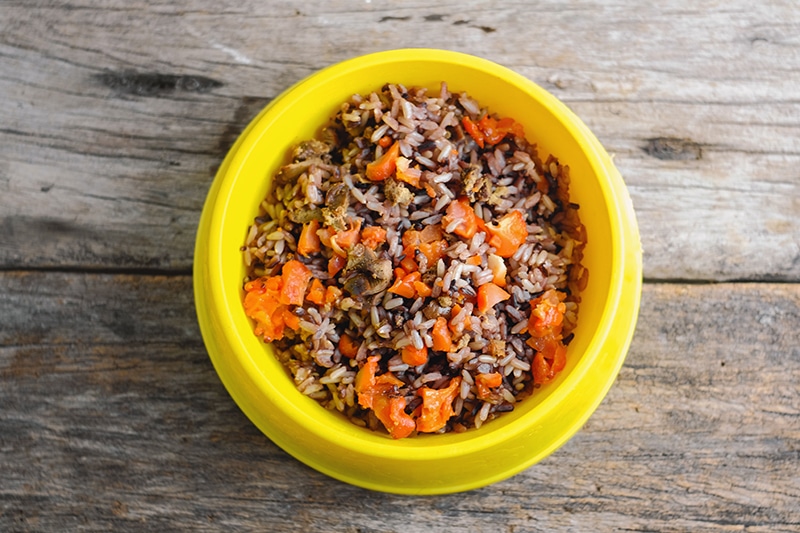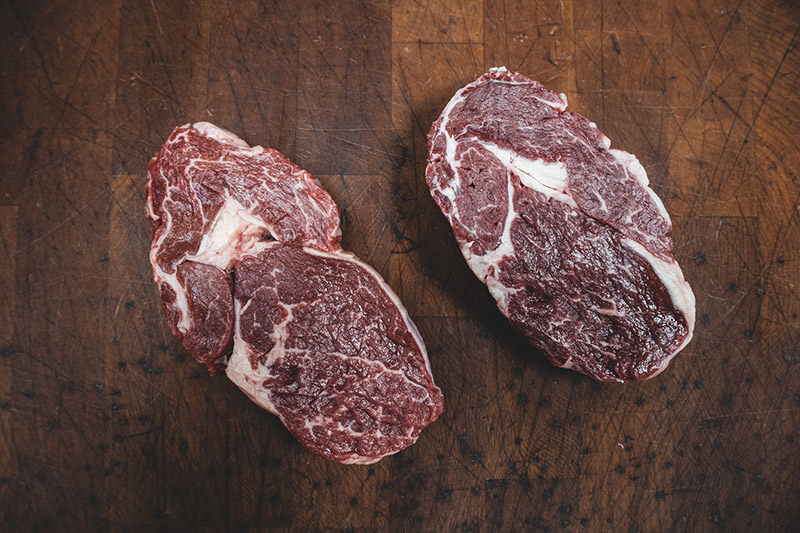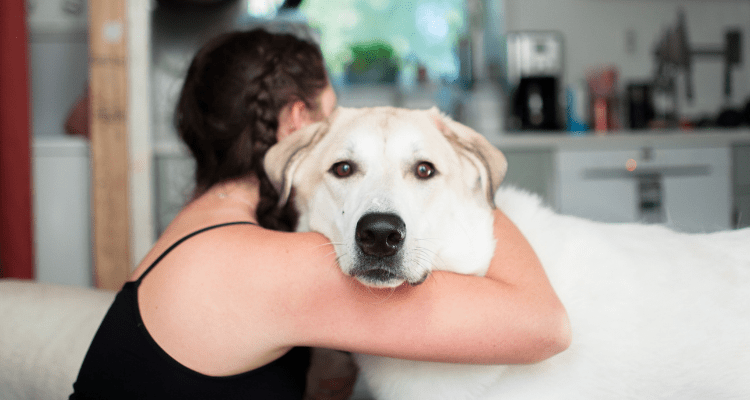Cats are obligate carnivores, which means that they require a diet primarily consisting of animal-based protein to survive. The question of whether cats can eat raw meat is often asked by pet owners seeking to provide their feline companions with a more natural diet. The answer is yes; cats can eat raw meat, BUT it’s essential to understand the potential risks and benefits associated with feeding a raw diet to ensure your cat’s health and safety.

Understanding Feline Nutrition
As obligate carnivores, cats have evolved to consume a diet primarily composed of animal-based proteins. Their digestive systems are specifically adapted to process meat, and they lack certain enzymes needed to digest plant materials efficiently.
Cats require specific nutrients that can only be obtained through animal-based sources, such as taurine, arachidonic acid, and vitamin A. These nutrients are essential for maintaining optimal health, and any deficiencies can lead to severe health issues.
Raw meat has the potential to provide cats with essential nutrients in a form that closely resembles their natural diet in the wild, if used in the appropriate way. Feeding raw meat can help meet their nutritional requirements while promoting overall health and well-being.

Benefits of Raw Meat for Cats
Feeding raw meat can improve digestion, as cats’ digestive systems are better equipped to process uncooked animal proteins. This can lead to better nutrient absorption and fewer gastrointestinal issues. Chewing on raw meat and bones can help promote dental health by reducing plaque and tartar buildup. This can lead to fresher breath and a lower risk of dental problems. A raw meat diet, rich in high-quality animal proteins, can support lean muscle development in cats, helping maintain a healthy body condition.
Potential Risks of Feeding Raw Meat
Feeding raw meat carries the risk of bacterial contamination, such as Salmonella or E. coli, which can cause illness in both cats and humans. Proper food handling and hygiene practices are essential to minimize this risk. Raw meat can contain parasites, such as Toxoplasma gondii or tapeworms, which can pose a health risk to your cat. Freezing meat before feeding can help reduce the risk of parasitic infection.
Feeding an exclusively raw meat diet without proper supplementation can lead to nutritional imbalances, as some essential nutrients may be lacking. It’s crucial to ensure a balanced diet by including organ meats, bones, cartilage, and appropriate supplements as needed.

Precautions for Feeding Raw Meat
When preparing raw meat for your cat, it’s important to follow safe food handling practices, such as washing hands and surfaces, using separate cutting boards and utensils, and properly storing raw meat.
Ensure that the raw meat you feed your cat is sourced from reputable suppliers and is fresh and free from harmful bacteria or parasites. Store raw meat separately from other foods in the refrigerator and use airtight containers to prevent cross-contamination. Freeze any unused portions promptly to maintain freshness. Thaw each day’s portion in the refrigerator; never re-freeze and re-thaw, as this increases the risk of bacterial proliferation in the meat.
Ground or minced beef (or any ground meat) should be avoided when feeding a raw diet. Any dangerous pathogens are generally found on the outer surface of meat, which is why it is safe for humans to eat rare steak – provided the outer surface has been cooked at a high enough temperature, bacteria should have been killed.
When meat is put through a grinder, the outside mixes with the inside, meaning that any pathogens are now mixed through the meat. This is why it is important to make sure that ground meat is thoroughly cooked before serving it, and why it should not be included in a raw diet.
Transitioning Your Cat to a Raw Diet
Introduce raw meat into your cat’s diet gradually, starting with small amounts mixed with their current food. Slowly increase the proportion of raw meat over several days or weeks until they are fully accustomed to the new diet.
Keep a close eye on your cat’s health during the transition period, watching for any signs of digestive upset, allergic reactions, or changes in weight and energy levels. Consult with your veterinarian if you have any concerns.
As your cat becomes accustomed to a raw diet, you may need to adjust portion sizes and ingredients to ensure they are receiving all the necessary nutrients in the right amounts. Regular veterinary check-ups can help ensure your cat’s nutritional needs are being met.

Raw Diet Alternatives
Commercially Prepared Raw Food
If you’re concerned about the risks associated with feeding raw meat, consider commercially prepared raw food diets for cats. These products are formulated to meet your cat’s nutritional requirements while minimizing the risk of bacterial contamination or parasites.
Dehydrated or Freeze-Dried Raw Food
Dehydrated or freeze-dried raw food options provide the benefits of a raw diet without the risks associated with handling and storing raw meat. These products can be rehydrated with water before feeding, making them a convenient alternative to fresh raw meat.
Home-Cooked Diets
Home-cooked diets allow you to control the ingredients and quality of your cat’s meals while ensuring their nutritional needs are met. Consult with a veterinarian or pet nutrition expert for guidance on creating a balanced home-cooked diet for your cat.

Other FAQs About Raw Diets for Cats
Q: Can all cats safely eat raw meat?
A: While most cats can eat raw meat, it’s essential to consult with a veterinarian before making any significant changes to your cat’s diet, especially if they have any pre-existing health conditions.
Q: What types of raw meat can I feed my cat? A: Cats can eat various raw meats, such as chicken, turkey, beef, lamb, and rabbit. It’s important to include a variety of proteins to ensure a balanced diet.
Q: Should I feed my cat raw organ meats? A: Yes, organ meats are an essential source of nutrients for cats, such as taurine, vitamins, and minerals. They should make up a portion of your cat’s raw diet to ensure optimal nutrition.
Q: Can I mix raw meat with commercial cat food?
A: It’s generally not recommended to mix raw meat with commercial cat food, as the nutritional balance and digestion rates may differ between the two types of food.
Q: Can I prepare raw cat food in bulk and freeze it for later use?
A: Yes, you can prepare raw cat food in bulk and freeze it in portion-sized containers. Thaw the food in the refrigerator before feeding it to your cat. Provided your freezer maintains a stable temperature, the food should be safe for up to 6 months.

Conclusion
Cats can eat raw meat as part of a balanced diet, and there are potential benefits to feeding a raw diet, including improved digestion, dental health, and lean muscle development. However, there are also risks associated with feeding raw meat, such as bacterial contamination, parasites, and nutritional imbalances. If you talk to your vet and take proper precautions, you can provide your cat with a safe and nutritious raw diet tailored to their specific needs.
Featured Image Credit: Kyle Mackie, Unsplash




